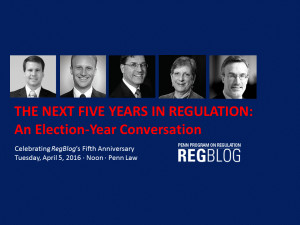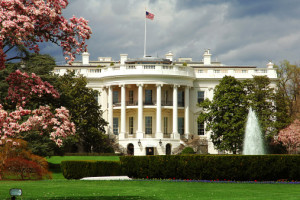RegBlog Celebrates Fifth Anniversary with Panel of Top Regulatory Thinkers
Panel organized by RegBlog and Penn Program on Regulation examines upcoming election’s implications for regulation.
Week in Review
The U.S. and China pledge to sign Paris Climate Agreement, multi-agency rule bans religious groups from discriminating against social services recipients, and more…
Is Dungeness Crab Safe to Eat?
California regulators lift ban on commercial fishing following health, economic, and environmental concerns.
Federal Agency Tackles Health Care Gap for Transgender Soldiers
A proposed rule would cover certain gender transition services for military members.
New Regulation Could Actually Reduce Access to Investment Advice
Study highlights the potential value of professional investment advice—and the cost of curbing access to it.
Week in Review
The DOL takes a step toward regulating retirement investment advisers, OSHA issues a rule to protect workers from silica dust, and more…
The Best Way to Implement the Clean Power Plan
Energy policy expert argues that imposing a price on carbon is vital to implementing the Clean Power Plan.
Are Broadband Providers Putting Consumers’ Privacy at Risk?
Advocacy groups push the FCC to address data sharing among Internet companies.
Booksellers Challenge Internet Law
Free speech group claims that a Louisiana law governing online content violates constitutional rights.
Week in Review
President Obama nominates Merrick Garland to the Supreme Court, the DOI proposes a leasing program for offshore oil and gas exploring, and more…










